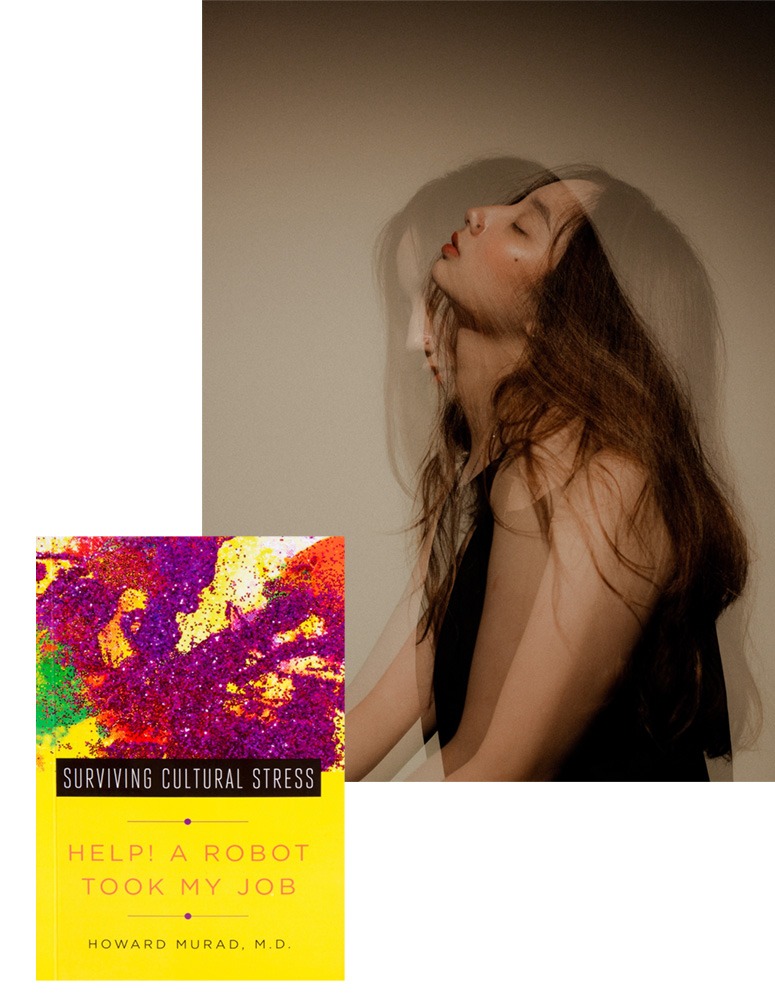Identity Theft—It’s a Health Issue!
We’ve all heard about the data breaches that have resulted in millions of people “losing their identity,” which, in common usage, means that hackers have stolen your financial data and can use your credit cards and bank accounts as if they were you.
I’m concerned, however, about a different kind of identity theft—one in which people don’t feel as if they have an identity—because many of the ways that we used to define ourselves have changed.
In the gig economy, we’re no longer known by the company we work for and the longtime relationships we’ve built there. When we move from place to place—renting, rather than buying a home we plan to stay in for years—we’re no longer known by our neighbors. We may not be known by the car we drive, because it changes with the next Uber driver. We might not have a long-term relationship because it’s easier to just “hook up” for the night with someone we meet on Tinder. People are so busy and isolated from their communities that connecting in formal or informal gatherings as we used to seems all but impossible. Fewer of us play in a sports league; instead we go to the gym and sweat, shower, and change with strangers. Many of us don’t even have relationships with local shopkeepers; instead, buying our goods on Amazon.
Of course, who we are inside is not necessarily changed by the apartment we live in or the car that transports us; however, as social beings, we humans do depend on others for our sense of self. South Africans have a term for it, Ubuntu: I am because we are. I know myself through my relationships with others.
And if we don’t have close or continuous relationships with others?
The results can be damaging! Anonymity can lead to higher crime rates—because criminals aren’t hurting anyone they know, and neighbors are less likely to report a crime that take place between two strangers. Anonymity can also lead to an increase in behaviors like littering, graffiti, and property neglect. People don’t feel invested in the places they live, because, after all, they’re temporary.
Worse—from a doctor’s perspective—anonymity—impermanence and a lack of a sense of community—also have profound health effects. In fact, I consider them to be among the most debilitating aspects of cultural stress.
Studies have shown that the populations who live the longest—in so-called Blue Zones—including the people of Okinawa, Japan; Sardinia, Italy; Loma Linda, California; Nicoya, Costa Rica; and Ikaria, Greece—have several traits in common. The first is a culture that reinforces healthy diet and exercise. The second is healthy social relationships and psychological well-being. The third is “a cooperative spirit”—in other words, a community. (The other three traits are gardening; a sense of being valued even in old age; and easily access to public health.) At least two of the traits—really three, if you consider the sense of being valued as you age—are social characteristics. They’re factors that
As Blue Zone researcher Dan Buettner points out, healthy diet and exercise are important. But what holds these healthy behaviors in place, he says, “like collagen holds your skin in place, is belonging and having a sense of purpose.” (As a dermatologist, I love his metaphor!)
What can you do about identity theft?
First, recognize it as an issue, a serious aspect of cultural stress.
Two, take steps to manage it, just as you do other aspects of stress in your life.
Cultivate connection! Build relationships wherever you can—whether that means getting to know your neighbors; shopping locally, so that you interact with neighborhood shopkeepers; joining a professional association where you can socialize with colleagues in the gig economy; choosing an exercise you can do with friends—be it walking, running, contra dancing, or volleyball; joining a church or synagogue and staying beyond the service for the social hour; volunteering with others for a cause you’re passionate about; and even something as basic as taking the time to socialize with friends—making physical interaction an important aspect of your health regimen—more highly valued than a night at home in front of the TV.
Three, value yourself. I say this in many of my books, in any number of ways. “Give yourself permission to be happy.” “Honor yourself.” “Treat yourself like royalty.” “Get in touch with your passion.” One way to do this is by taking time to journal—which is a way of getting to know your inner self, beyond the daily “to-do list.” From there, do what makes you happy; not what everyone says you should be doing. Cultivate connection with your inner toddler—the one who’s not afraid to try new things; to fail and try again; to express her feelings; to make friends easily, play all day, and take a nap when he’s tired.
After all, you take steps to guard your identity against cyber-theft. It’s even more important to guard against the loss of your very sense of self.
In this inspirational little book, Help! A Robot Took My Job! I share the story of a patient who, after losing his job to automation, went back to his employer and convinced him that some customers might pay more for a human-mediated experience…and he was right!
